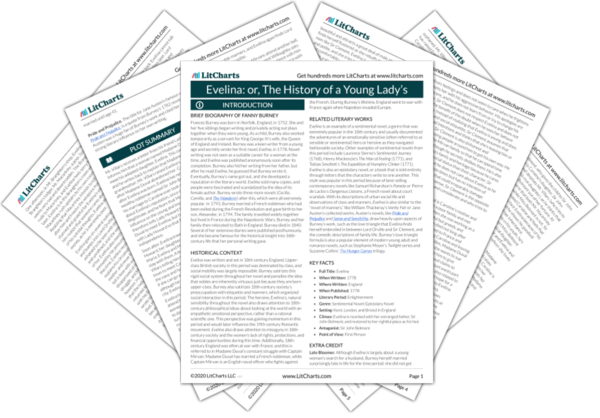Tom uses Evelina’s name without her permission to get around strict etiquette conventions, ingratiating himself with Lord Orville to improve this social status. Upper-class etiquette in this period meant that people could not freely visit each other but must be formally introduced first. Tom, who is middle-class, disregards this rule and uses Evelina’s name because he is a social climber and wants to make connections with nobles like Lord Orville. Eighteenth-century Britain was strictly divided by class, however. Even though Tom’s family is wealthy, he cannot join the nobility and can only connect with them as a tradesman who can sell them things—not as an equal.
